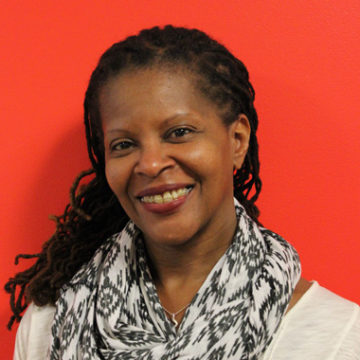

Last week I attended a powerful workshop organized by TSNE – MissionWorks called “Moving Beyond Diversity to Inclusion.” Co-facilitators Stewart Lanier and Trina Jackson offered loads of food for thought, including feedback shared by people of color about white-led institutions:
As a white person, my heart may be in the right place, but the commitment to rolling up my sleeves and taking the risks needed to create real change and inclusion has not been demonstrated.
Instead of being viewed individually as a person of color, you will be seen as the go-to person to speak on behalf of the group folks assume you identify with.
As a white person, I might react defensively to any questioning or perceived criticism of ideas/how things have always been done. As a result, I deflect attention away from actually addressing issues that need to be faced.
As a white person, I might jump to conclusions about your interests, what’s important to you, how you like to spend your time, etc.
One workshop participant shared her experience that her race is gendered and her gender is racialized. Stereotypes about both aspects of her identity get layered upon her.
People of Color might compete against each other to be the “model minority” and strive to be the “most authentic” in order to be accepted within white supremacist norms. To be clear about terms, here is a definition of white supremacy from David Gillborn that I’ve found to be helpful:
“By ‘white supremacy’ I do not mean to allude only to the self-conscious racism of white supremacist hate groups. I refer instead to a political, economic and cultural system in which whites overwhelmingly control power and material resources, conscious and unconscious ideas of white superiority and entitlement are widespread, and relations of white dominance and non-white subordination are daily reenacted across a broad array of institutions and social settings.”
Similar to “having good intentions but lacking substance”, as a white person, how am I acting? Do I actually follow up on things that I say I care about or is it just giving lip service? Am I willing to stand up?
One workshop participant shared that she heard the need not for “white allies,” but “white accomplices” – folks who are willing to use their voices and take action that disrupts the privilege they hold.
Building upon “you will be asked to represent all people of your color or your heritage”, this takes things a step further and puts you in the position of being the liaison for all People of Color out in the community.
For example, “Help me understand this rap song!”
Similar to the idea above about seeking White endorsement and approval, those People of Color who are seen as conforming most to White supremacist norms will have a leg up over those who don’t. Having to suppress parts of your identity in order to have access to greater opportunities and advancement is a difficult choice many People of Color feel they have to face.
_______________________
My plan is to come back to this topic for future blog posts, but in the interim I thought I would share two links:
I took these classes last spring and would recommend them to folks who are interested. Stewart Lanier is a WPCR facilitator.
I recently signed up to join this group’s e-news and learn about opportunities to get involved.